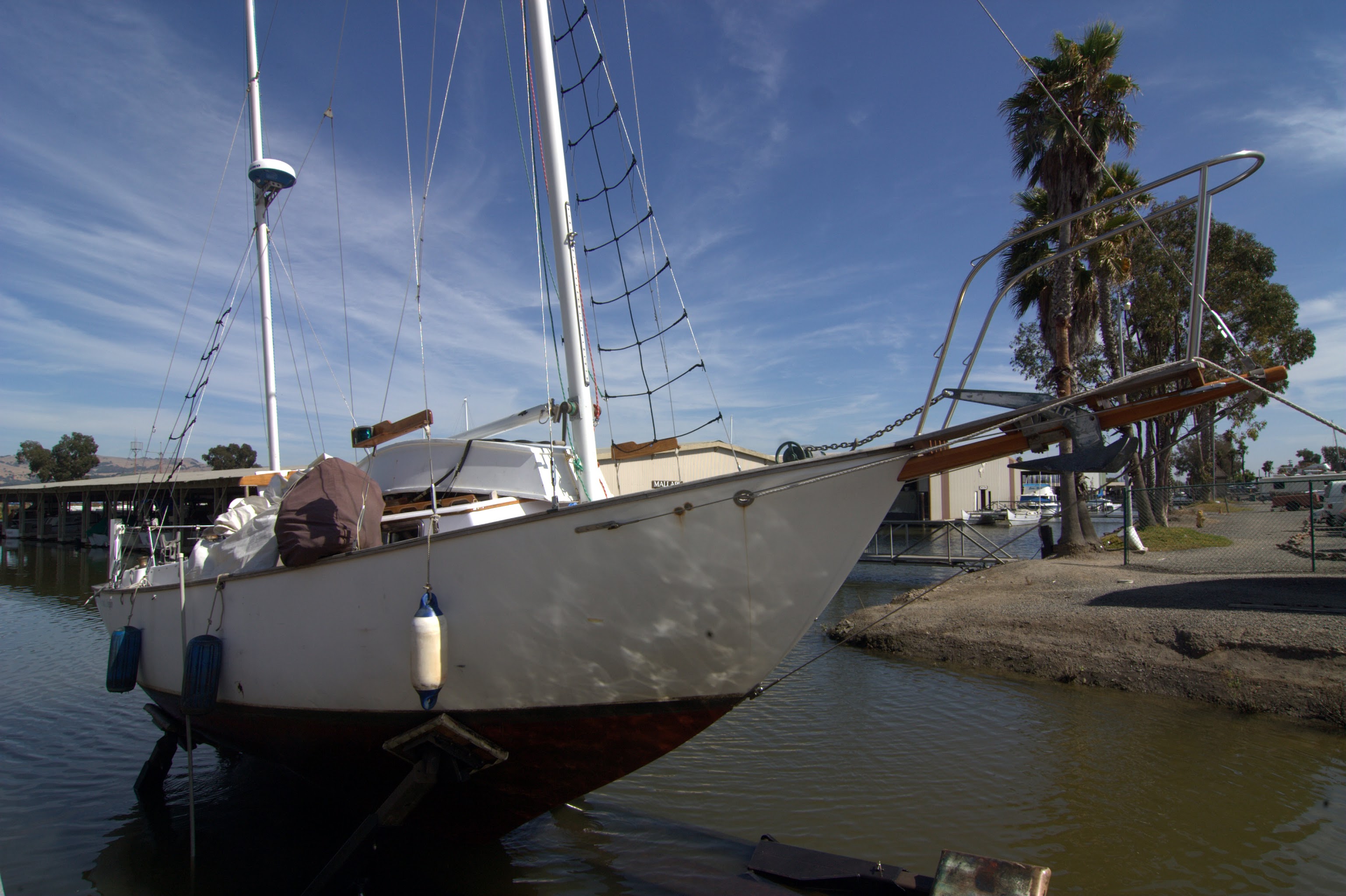I’d been trying to give away all my charts for the Pacific Northwest. Having gone down the coast to San Francisco there was no way I would ever need them again. Northbound trips are difficult and only get you to cold and dangerous waters. No one does that.
I’m glad I failed to give those charts away, because I sit here tonight in Bellingham, sorting my charts, and preparing for a trip over to the San Juans, and then to the south Puget Sound to find Madrone a winter home.
I’m not crazy, I didn’t sail my boat up here. That would mean a long bash into a freezing head wind, shaking everything on the boat loose, while hugging a rocky coast, with lots of shipping traffic, in the fog. No way. No no no. I had folks load it on a truck and drive it up here for me. Hell of a thing.
Not an affordable thing, I suppose, since the final cost is a sizable chunk of the total value of the boat. Especially since the boat transporter (Associated Boat Transport) hit me with a surprise 25% price increase once I was depending on them. But in the long bash upwind there is a real chance of losing your rig or your engine, and that would cost even more.
And not a convenient thing, by any means. The masts must come down, the rigging must be taken off, everything must be labeled and stowed. It took 2 days work to get the boat ready for the truck and it will be 3 more when the masts are back up tomorrow.
Why go north at all? A good reason is that Kristin has a job in Portland, a town we dearly love, and we didn’t want to leave our boat behind in California. Nor did we want to live on it for a winter out by the airport in Portland. But a better reason is that we weren’t done up here. Unfinished business. The four months we spent rounding Vancouver Island were so rewarding, but also rushed. Hopelessly rushed. I think it might take 10 years. Maybe 100. I missed these deep rich waters. There is something primeval about them, something I noticed on my first kayak trip from Anacortes to Cypress Island years ago. These waters, sometimes 1000 feet deep, never far from land, are cold enough to kill you, but full of life. Just looking down, into the water, and seeing the bull kelp and blue stars, or seeing nothing at all but knowing how much is happening down there, I feel that same sense of awe that more commonly accompanies grand sunsets or canyons.
Bellingham is quite a contrast from our last cruising ground, the “delta”. We traveled up the Sacramento River, through a few backwaters, and then down the San Joaquin River. It was a week of 95 degree days and 70 degree water. And when I say backwater, I mean backwater. Shallow, muddy, middle of nowhere. The delta is an absurd place, fraught with sloughs and rivers and flooded farmland.
It resembles a bayou in Mississippi sometimes, and other times the dry part of the Columbia Gorge. We anchored in “Frank’s Tract”, which sounds gross, but is beautiful. A parcel of farm land, presumably owned by Frank, was surrounded on all sides by canals for irrigation, and levees to defend the ever subsiding land. When the levees failed, there was no going back, and Frank’s farm became a public waterway. They say at low tide you can still see a tractor.
We then went up the Napa River and hauled our baby out. It was hard to leave the boat there, trusting that one day a guy would come and get it. I told people “My boat is in Napa” and they probably thought I was bragging but what I meant was “Keep my boat in your thoughts, the poor thing is stuck in Napa without me”.
We drove north through Sonoma, tasting some wine and singing “Goodbye California” by Jolie Holland. The countryside was beautiful, the wine was good, the sun was hot, and it probably makes me different from you, but I was so happy to be leaving that all behind for the cold and the grey and the moss and the fir trees of my beloved Pacific Northwest.













